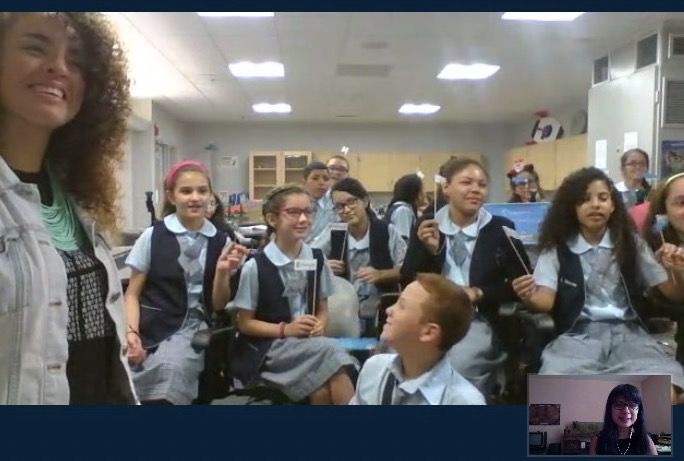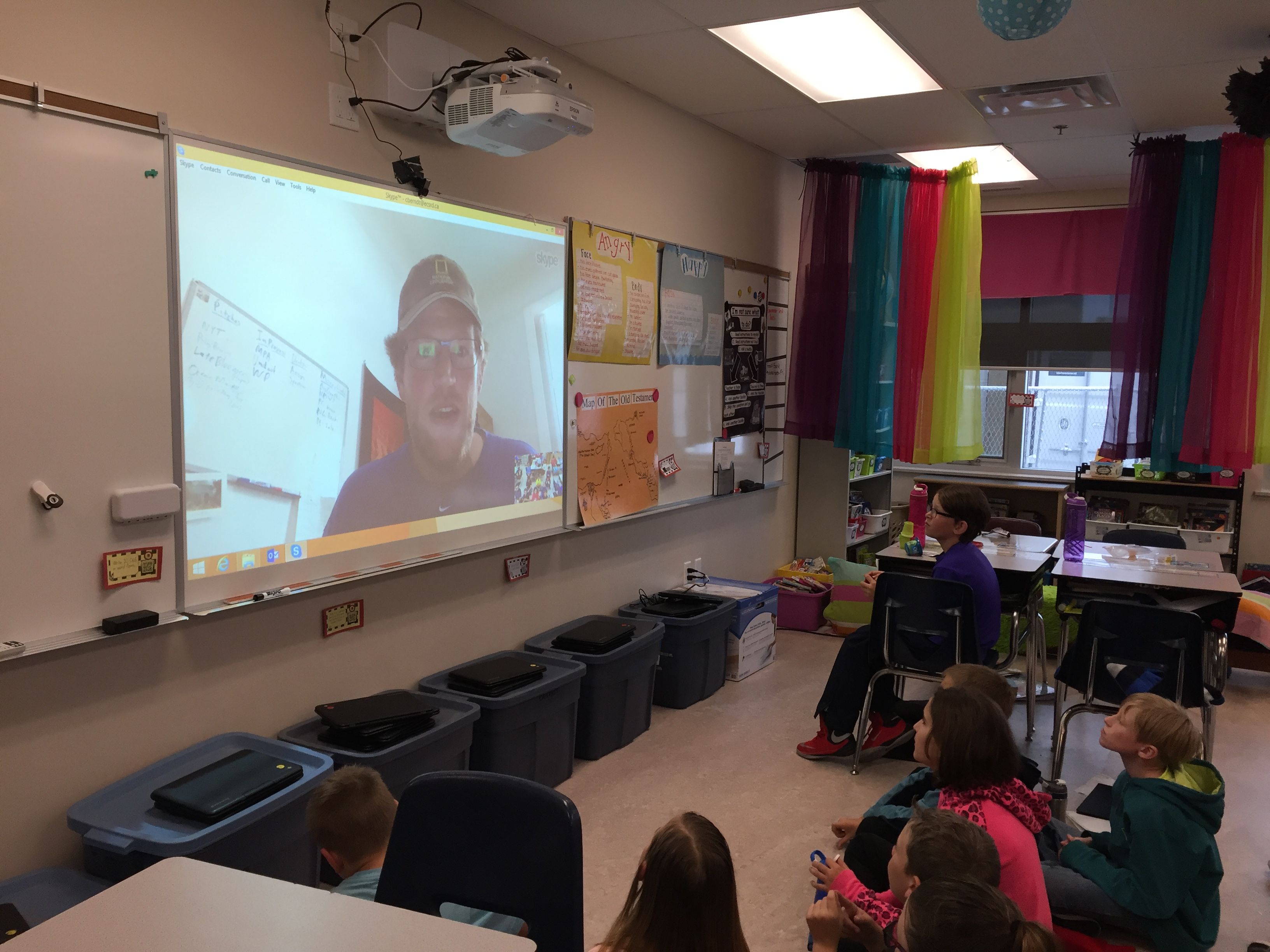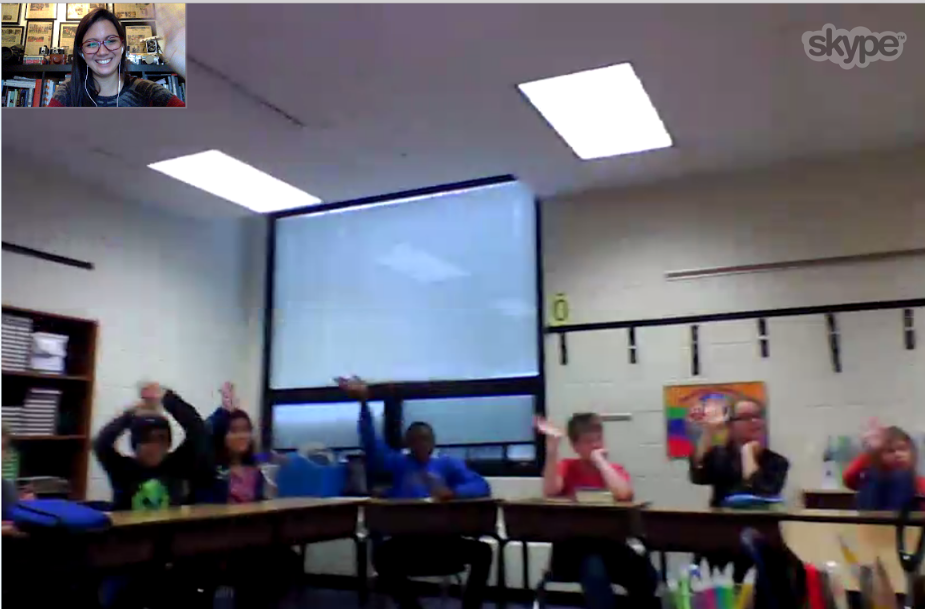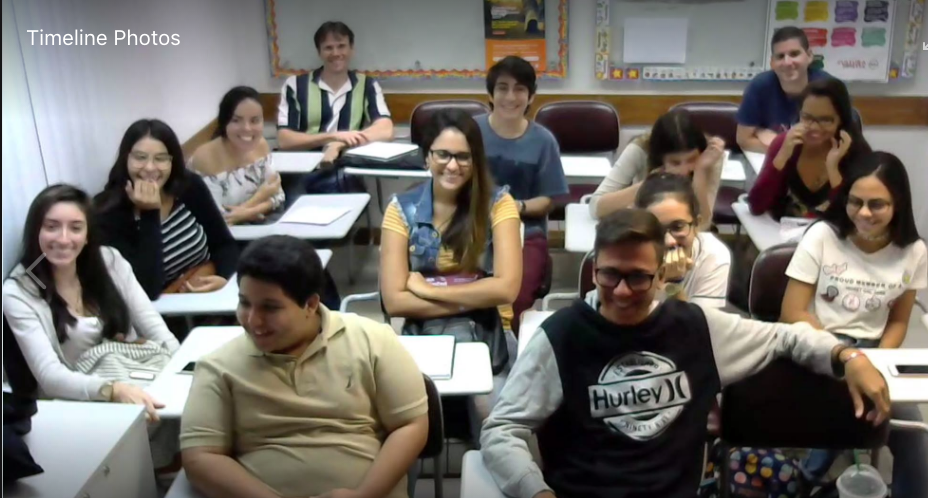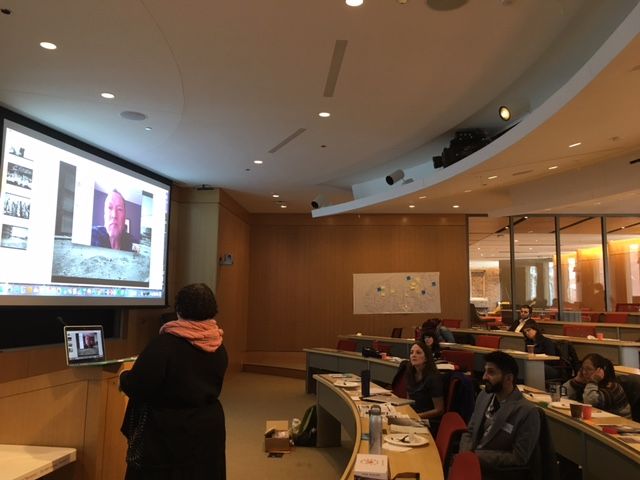Upholding education as one of the central features of our mission, the Pulitzer Center on Crisis Reporting has been bringing international journalists and their stories into classrooms across the United States and beyond for over 10 years. Last year, we partnered with Skype in the Classroom, allowing us to reach more diverse locations and more students than ever.
In the past year, our grantees have connected with 72 classes for Skype conversations that reached over 1,100 students. Unbounded by geography, our journalists presented in schools from Alabama to Kentucky to California in the U.S. and from Mexico to Malaysia to Greece abroad. Drawing on the diverse specializations of our grantees, we facilitated interactive, complementary discussions for students studying a wide range of subjects such as Digital Arts, Ocean Ecology, and Creative Writing and at grade levels from elementary through high school.
“[The journalist] was fabulous and kept the students engaged,” wrote Jessica Walsh, whose 4th grade students Skyped with Pulitzer Prize-nominated journalist Justin Catanoso. “He didn't talk over their heads. He talked ‘to’ them…It was wonderful for them to hear from someone who is out in the world researching everything we were discussing in class.”
Skype sessions begin with a brief presentation in which our reporters outline their background and relevant projects, followed by a Q&A that allows students to engage directly. We work with teachers to select the journalist best suited to their needs and connect the teacher and journalist in advance of the session. We also provide a wealth of teaching resources, including lesson plans connected to the reporting, so that students can get the most out of the experience.
“I was provided with a lesson builder plan and it was excellent. It let me integrate the topics of activism, social media, and journalism into my class,” wrote Zacha Ortiz, a 7th grade teacher in San Juan, Puerto Rico in a post-session survey about her Skype with grantee Kara Andrade. “My students were really amazed to understand how the research process is integrated in other fields outside science.”
Teachers have noted that speaking with a journalist gets students excited about learning and has a lasting impact. “[My students] have been talking about the effects of overfishing and talking about how to ask the right questions about what kinds of food they are eating,” wrote one educator after a journalist Skype session.
“[My students] said [the session] made them think more about kids like them who are growing up in Syria and Cuba,” wrote another. “They want to learn more about living in Syria and Cuba, as well as journalists who cover global issues.”
In the coming year, we hope to expand our Skype program to connect with more classrooms studying a broad range of issues, from climate change to migration to combating “alternative facts.” We are also offering an increasing number of professional development workshops over Skype, equipping teachers to use Pulitzer Center resources with their students all year long.
We are excited to work with educators to create a customized experience that matches their goals. Visit us at our Skype in the Classroom page or reach out to us directly at [email protected] to start collaborating with us.
